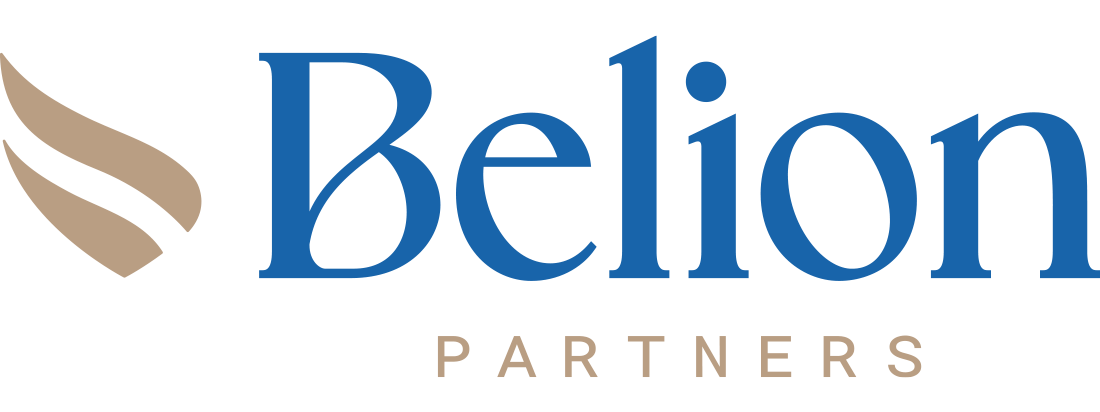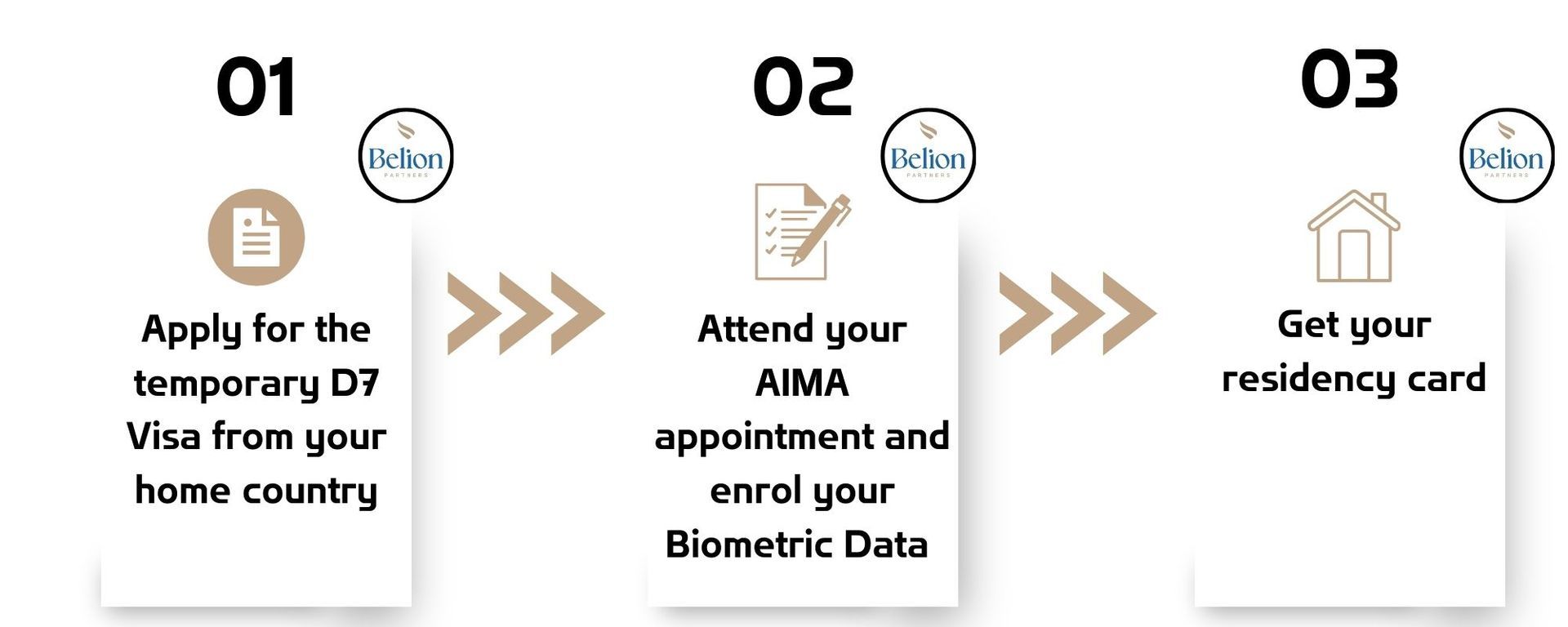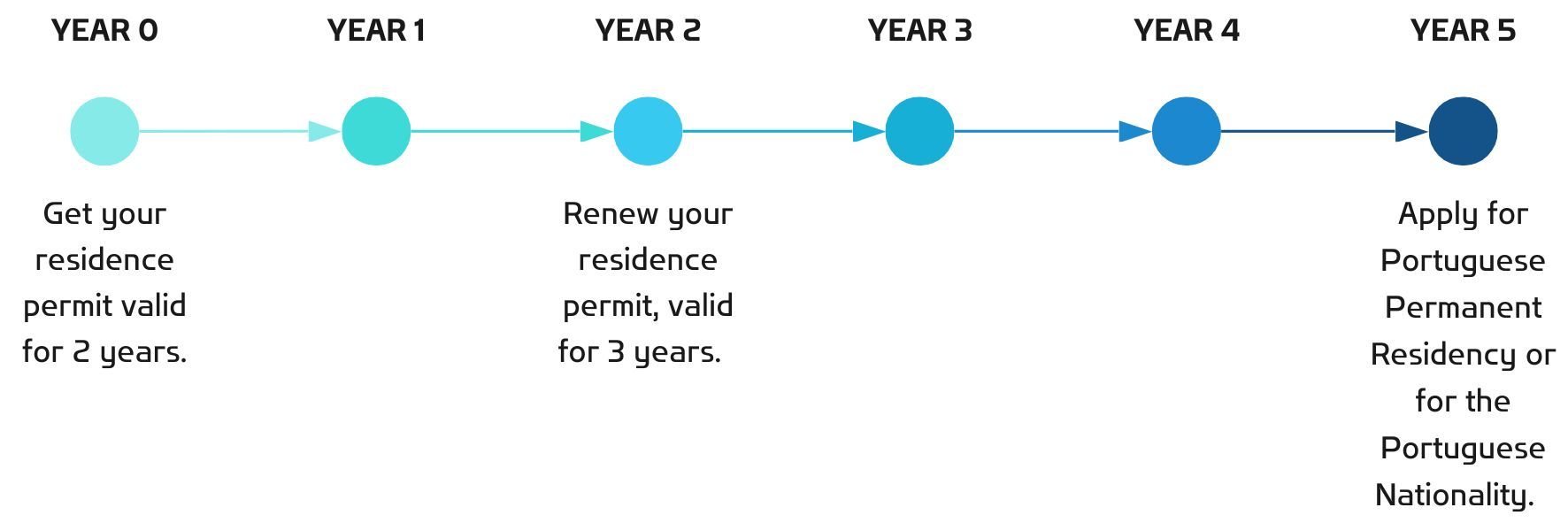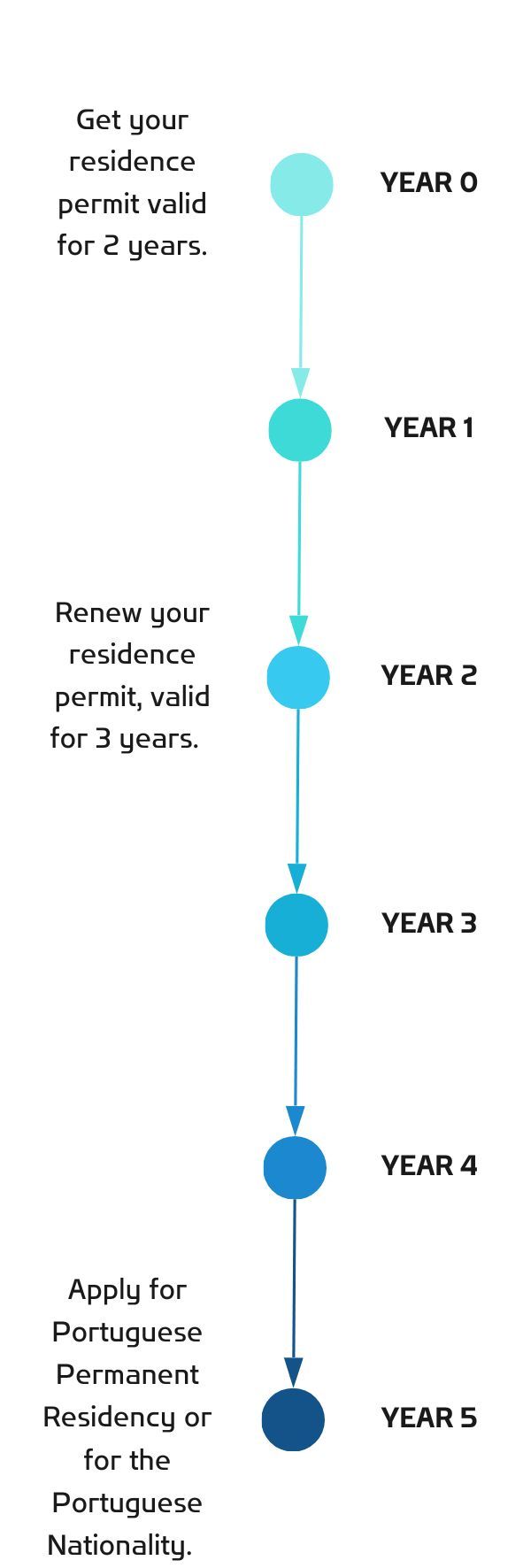Portugal Passive Income D7 Visa
Passive income earners, including retirees, who intend to move to Portugal may advantageously apply for a specific residence permit, known as the Portugal Passive Income Visa, also known as D7 Visa.
What's on this page
- What is the Portugal Passive Income D7 Visa?
- What are the benefits of the Portugal Passive Income D7 Visa?
- What are the requirements for Portugal's Passive Income D7 visa?
- Portugal Passive Income D7 Visa Application Process
- Navigating the Portugal Passive Income D7 Visa Application Process
- What are the minimum stay requirements?
- How much does it cost to obtain a Portuguese Passive Income D7 Visa?
- How to Renew the Portugal Passive Income D7 Visa
- Frequently Asked Questions
What is the Portugal Passive Income D7 Visa?
The Portugal Passive Income Visa, or D7 Visa, is part of the Portugal residence permits program introduced by the Portuguese government in 2007.
For D7 visa purposes, passive income includes earnings from activities not actively pursued, such as rents, royalties, dividends, and interest from financial investments, among others.
The Passive Income Visa serves as a temporary residence permit designed for non-EU/EEA/Swiss citizens not dependent on active salaried income. This encompasses income from pensions, transferable equity, real estate, and intellectual property. The visa aims to attract retired individuals and those relying on passive income to live in Portugal, contributing to the country's economic growth.
However, it is important to note that this visa also allows the applicant to pursue any professional activities while residing in Portugal, broadening the individuals who want to apply for this type of Visa.
To qualify, applicants need a minimum yearly income of EUR 9,840, equivalent to Portugal's minimum wage. If a second adult is involved, such as a spouse or partner, they must have 50% of that amount (EUR 4,920 per year), and for each dependent child, 30% (EUR 2,952 per year). These criteria apply universally, regardless of the applicant's country of origin.
Notably, applicants for a Portugal Passive Income Visa possess the opportunity to extend residence permits to immediate family members, in accordance with
Family Reunification
regulations.
What are the benefits of the Portugal Passive Income D7 Visa?
Free Circulation
Permanent free entry and circulation in the Schengen Space, comprising 26 European countries.
Live in Portugal
Freedom to live in Portugal and, if so wished, to have a professional activity in this country.
Access to the National Health Service
Access to quality free Healthcare services is available to all residents.
Access to the Portuguese School System
A wide array of opportunities exists for study, along with the chance for academic progression.
Resident's Rights
Access to other Portugal residents’ rights, such as education, healthcare, social security.
Visa-free mobility opportunities
The Portugal Passive Income Visa provides the holder with the privilege of visa-free travel to all 26 countries within the Schengen area. Possessing a D7 Visa enables individuals to navigate multiple countries seamlessly, eliminating the inconvenience and expense associated with acquiring separate visas for each destination.
Possibility to acquire the Portuguese Citizenship
The Portugal D7 visa, when converted into a residency permit, grants applicants access to Portuguese Citizenship or Permanent Residency after five years of legal residency, provided the applicant obtains an A2 level language certificate.
It is important to note that the initial residency card has a validity of two years, after which it can be renewed for an additional three years.
Residence rights in Portugal
When considering residency in Portugal, it is crucial to familiarize oneself with the range of advantages offered. One of the most significant benefits is access to the National Healthcare Service, which provides free or affordable medical care to all Portuguese residents. Residency allows the option to enrol in the National Education Service school, offering a comprehensive education system for minors and young adults.
Furthermore, residency status permits engagement in a professional activity as an independent professional and entails legal protection under the Portuguese legal system, conferring the same legal rights and protections as any other Portuguese citizen.
Additionally, residents are eligible to access vocational schooling in Portugal, providing an excellent avenue for developing new skills and career progression. These examples highlight just a selection of the numerous benefits accessible to residents in Portugal.
Family Reunification
At any point after receiving a Portugal residence permit, the main applicant can initiate the process of obtaining residence permits for family members through the Family Reunification rules. To proceed, an application must be submitted either directly to the competent authorities in Portugal or simultaneously at the Consulate along with the main applicant.
It is important to note that not all family members are eligible for the Portuguese Passive Income Visa. Eligible family members include:
- The spouse or partner, the quality of the partner having to be proved under existing law;
- Under-18-year-old children, dependent incapable children, or over-18 dependent children, as long as the latter are under 25, unmarried and enrolled as full-time students in Portugal (the reunification of an under-aged or dependent incapable child of only one of the spouses must be authorised by the other parent or by the official body that decreed the custody of the child by the applicant parent);
- Dependent parents of either spouse or partner;
- Under-18-year-old siblings of either spouse or partner if legally under their supervision.
Access to the National Health Service
In Portugal, both public and private healthcare options are available. The public healthcare system, known as the Serviço Nacional de Saúde (SNS), is accessible to all residents of Portugal, mostly free of charge, regardless of their income or social status.
For those preferring private healthcare, various infrastructures and private health insurances fulfil to specific needs.
Portugal's national health service is highly regarded for its quality and accessibility. Equipped with modern facilities, advanced medical technologies, and well-trained healthcare professionals, it offers exemplary healthcare services to both citizens and visitors.
Access to the Portuguese School System
In Portugal, the education system is regulated by the State through the Ministry of Education. The system includes both public and private institutions.
Education is free in public schools and compulsory until the age of 18.
The Portuguese education system is renowned for its excellence, offering comprehensive and high-quality options for students at all levels - from primary schools to prestigious university institutes. The system is designed to equip students with the knowledge, skills, and competencies needed to succeed in today's rapidly changing world.
All foreign students are welcome to join and integrate into the Portuguese education system, making it an inclusive and welcoming environment for learners from all over the world.
If you want to know more about the Portuguese school system or the benefits of living in Portugal, contact us. At Belion Partners, we're pleased to offer expert guidance on everything Portugal has to offer.
What are the requirements for Portugal's Passive Income D7 visa?
If considering a relocation to Portugal for long-term residency, the Portuguese Passive Income Visa offers a viable option worth exploring. This visa is a preferred choice among non-EU/EEA citizens seeking to reside in Portugal and enjoy its associated benefits.
However, to qualify for the visa, you must meet specific criteria.
Please note that under Portuguese law, applicants for this Residence Visa must provide evidence of having a net regular passive income - such as a pension, rental income, interest, dividends, or intellectual property income - deemed sufficient to support their family unit in Portugal.
We recommend having at least EUR 12,000.00 per year, with an additional 50% of this amount for the spouse and 30% for each dependent child, as this is generally considered sufficient. However, please be aware that Consulate officers assessing your request have discretionary power.
Furthermore, the applicant for the D7 Visa must satisfy the following conditions:
- Attain adulthood, being 18 years or older.
- Maintain a clean criminal record, with consideration given only to offences punishable under Portuguese law.
- Possess a Portuguese Tax Identification Number (NIF).
- Establish a bank account in Portugal.
- Secure a rental agreement and/or specify a residential address within Portugal.
- Commit to residing in Portuguese territory for a minimum of 16 months within the initial two-year period.
Throughout the application procedure, it is imperative to submit a diverse range of documents to AIMA, the Agency for Integration, Migration, and Asylum, previously known as SEF. These documents act as proof of the individual's adherence to the specified requirements.
A crucial element of this documentation involves providing supporting evidence confirming compliance with the prescribed minimum passive income criteria. Importantly, note that these income prerequisites may be subject to adjustments based on the number of accompanying family members during your relocation to Portugal.
If you need help with all the documentation and requirements to achieve your D7 Visa quickly and smoothly, reach out to us. We're happy to provide the assistance you need.
Portugal Passive Income D7 Visa Application Process
Starting a D7 Visa application is a detailed process, requiring careful attention and a good understanding of the Portuguese legal framework and requirements. The application involves significant bureaucratic tasks, demanding familiarity with immigration laws in Portugal. Without proper knowledge and preparation, managing the complexities of the D7 Visa application can be challenging.
The 3 main steps of the D7 Visa application:
D7 Visa application timeline:
How to obtain the Portuguese NIF?
Securing the NIF (Número de Identificação Fiscal) in Portugal is vital for various aspects of daily life. This unique 9-digit Portuguese taxpayer identification number is essential for entering into contracts, opening bank accounts, and conducting transactions for goods and services. The NIF is integrated into the citizen’s card.
The process to obtain the Portuguese Taxpayer number involves submitting a formal request to the Tax Authorities. In the majority of cases, individuals seeking to relocate to Portugal do not have a Portuguese address. In such situations, it becomes necessary to appoint a fiscal representative, who must have a fiscal address in Portugal.
How to open a Portuguese bank account?
In Portugal, having a bank account is an absolute necessity for completing day-to-day financial tasks. From paying bills and receiving wages to making purchases and managing investments, a bank account provides a secure and convenient way to handle your money. Regardless of your status as a resident or visitor, access to a dependable banking can make your life easier and help you achieve your financial goals.
It’s possible to open one remotely, and choosing the right bank to suit your needs is also an important consideration.
Accommodation in Portugal
Securing accommodation is a vital prerequisite when applying for the Passive Income Visa in Portugal. This involves establishing a stable and secure living arrangement through options such as property ownership, renting, or organizing temporary lodging. The visa application process places considerable importance on providing comprehensive evidence of a carefully considered and dependable accommodation plan. This underscores the critical significance of having a permanent and secure residence in Portugal to enhance the likelihood of a successful visa application.
Portugal Passive Income D7 Visa application at a Portuguese Consulate
The specific requirements may vary for each consulate, but all consulate interviews will necessitate the submission of the following documentation:
- Completed D7 Visa application form;
- Passport, valid for at least 6 months after the expiry date of the Portugal D7 visa being applied for (which will be valid for 4 months);
- Two recent passport-size colour photos;
- Declaration outlining reasons for obtaining Portuguese residency;
- Health insurance policy valid in Portugal.
- Criminal record certificate or Police clearance letter (FBI report in the case of a US resident) issued no more than 90 days before the date of submission to the Consulate.
- Documentary evidence of having accommodation in Portugal (property title deed, rental agreement, or property
- Documentary evidence of having sufficient funds available for the applicant’s subsistence in Portugal (e.g., a local bank statement showing the recommended balance) and having a net regular passive income of at least EUR 12,000.00 per year, plus 50% of this amount for the spouse and 30% for each dependent child.
Residence Permit program application in Portugal
In order to apply for the residence permit, a specific visa is essential for entry into Portugal. This special visa, issued by a Portuguese Consulate, allows for a maximum of two entries and a stay in Portugal of up to 4 months.
The appointment with AIMA ( Agency for Integration, Migration, and Asylum) will take place once the applicant is in Portugal.
It will be required to submit the following documents at the AIMA appointment:
- Passport having the special visa issued by the Portuguese Consulate;
- The documentary evidence of having sufficient financial means and permanent accommodation in Portugal, as submitted to the Portuguese Consulate;
- Health insurance policy valid in Portugal;
It is also recommended to keep copies of all documents submitted at the Consulate.
If you want to learn more about the Portuguese D7 Visa,
get in touch with us. We’re here to provide the assistance you need.
What are the minimum stay requirements
A holder of a temporary residence permit, such as the Portuguese Passive Income Visa, must meet specific minimum stay requirements to maintain the validity of the permit. The requirements are as follows:
First 2-Year Period: The individual is expected to spend at least 16 months in Portugal.
Subsequent 3-Year Period: For the next 3-year period, a minimum of 28 months in the country is required. Importantly, no absence should exceed 6 consecutive months during this period.
For those who transition to a permanent residence permit:
Minimum Stay: The holder of a permanent residence permit must stay in Portugal for a minimum of 30 months during each 5-year period.
Absence Limit: no absence should exceed 24 consecutive months.
Complying with these stay requirements is crucial to avoid the revocation of the residence permit. Permit holders are recommended to maintain precise records of their time spent in Portugal and carefully plan their stays to align with these regulations.

Additionally, it's relevant to highlight that certain exceptions may apply to the minimum stay requirements. If an applicant has compelling professional or force majeure reasons that necessitate exceeding the specified absence period, it is imperative to provide justified documentation to AIMA (Agency for Integration, Migration and Asylum). This allows for a more flexible evaluation of the circumstances surrounding prolonged absences, considering valid and verifiable reasons for not meeting the standard stay requirements.
How much does it cost to obtain a Portuguese Passive Income D7 Visa?
The government fees for this temporary residence type amount to EUR 226.77 per applicant (government fees are subject to annual updates, typically in March).
Although these fees are not excessive, it is prudent to meticulously assess all associated costs when contemplating a move to Portugal. Relocating to a new country inevitably incurs expenses, and Portugal is no exception. Thorough research is essential to comprehend the full extent of costs tied to the relocation process.
The D7 Visa may have relatively modest government fees. Nevertheless, it is advisable to plan comprehensively, considering both mandatory expenses and lifestyle choices, to make informed decisions regarding the financial aspects of relocating to Portugal.
How to Renew the Portugal Passive Income D7 Visa
The initial D7 visa application results in the issuance of a residency card valid for two years. Subsequently, it becomes necessary to renew the residency permit, extending its validity for an additional three years.
Upon reaching five years of legal residency, applicants can apply for permanent residency (which entails five more years of legal residency in Portugal) or for Portuguese Citizenship. Both applications require demonstrating basic proficiency in the Portuguese language by successfully completing a language proficiency test at the A2 level. This process signifies a significant milestone for those aiming to establish a lasting connection with Portugal.
For information on the A2 Portuguese language test and the alternatives available, contact us. At Belion Partners, our partnership policy is tailored to meet all our clients' needs with excellence.
Frequently Asked Questions
What is Portugal D7 Visa official Website?
An official website for the Portugal D7 Visa does not exist. However, there are various public and governmental entities involved, each with their own official websites. For example, the AIMA Agency website. Given the intricate and complex nature of this process, seeking legal counsel is imperative. For precise information regarding the involved agencies, please do not hesitate to contact us.
What is the D7 Visa rejection rate?
The Portugal D7 Visa is known for having a relatively low rejection rate among applicants. This is largely because many applicants seek assistance from legal experts to ensure that their applications are properly prepared and supported. As a result, most D7 Visa applications can successfully meet the requirements and are approved by the Portuguese authorities.
What is the Portugal D7 Visa cost?
By law, EUR 9,840.00 per year, plus 50% of this amount for the spouse and 30% for each dependent child, is deemed sufficient. But please note that the Consulate officers who will assess your request have some discretionary power, note the government fees are updated yearly. As such, we recommend at least EUR 12,000.00, plus EUR 6,000.00 for the spouse and EUR 3,600.00 per child, and the higher the proven net worth and income, the better. Additionally, legal fees and other services such as health insurance may vary depending on the company.
D7 Visa or Passive Income Visa?
Although the official name of the visa is Portugal D7 Visa, it is also commonly known as the Passive Income Visa due to its primary requirement. The Portugal D7 Visa is a type of visa that allows non-European Union citizens to reside in Portugal for an extended period. To qualify for this visa, the applicant must demonstrate a reliable source of passive income, which can cover their living expenses without the need to work in Portugal.
What is the difference between EU, EEA and Swiss citizens?
To clarify, EU citizens are those who hold citizenship from one of the 26 countries that are part of the European Union. On the other hand, EEA citizens are individuals who are citizens of the EU countries as well as Iceland, Liechtenstein, and Norway. Lastly, Swiss citizens are those who hold citizenship from Switzerland.
What are the alternatives to the D7 Visa?
It's worth noting that there are several alternatives to the D7 visa, such as the Golden Visa, and other types of visas. However, it's important to keep in mind that each visa type has its own set of specific conditions and requirements that must be met. Understanding these unique aspects of each visa option can be essential in determining which one is the best fit for your circumstances and goals.
What are the benefits of moving to Portugal?
Portugal offers an abundance of advantages to those who decide to make it their new home. The country boasts a stunning climate, with warm temperatures and plenty of sunshine year-round. The cost of living in Portugal is also quite affordable, allowing you to stretch your budget further than in many other European countries. The quality of life in Portugal is exceptional, with top-notch education and healthcare systems that are accessible to all. The country is incredibly diverse, with a rich history and culture that you can explore and immerse yourself in. Additionally, Portugal is one of the safest countries in the world, placed in the Top 7 of the Global Peace Index, making it an ideal place to raise a family or retire. Overall, Portugal is a wonderful place to live, offering a high quality of life and a welcoming community that will make you feel right at home.
What are the minimum requirements for health insurance?
Health insurance must meet certain minimum requirements to ensure compliance with the D7 process. Specifically, it must be valid in Portuguese territory and have a minimum validity period of one year.
Understanding the difference between visa insurance, expat insurance, travel insurance, and Schengen travel insurance can be confusing. We created a post to clarify
what visa insurance is and its purposes.
Am I allowed to work in Portugal with a D7 visa?
Certainly, D7 Visa holders in Portugal are permitted to engage in any professional activity of their choosing. However, applicants must demonstrate a minimum yearly passive income equivalent to the Portuguese minimum wage to qualify for this visa category. If the applicant brings a spouse or partner, they must have 50% of the minimum wage, and for each dependent child, 30%.
We recommend having, at least, a yearly net regular passive income of EUR 12 000 for the applicant, with an additional 50% of this amount for the spouse and 30% for each dependent child once the Consulate officers have discretionary power in this regard.
Which family members can I take with me to Portugal on a D7 visa?
The Portugal D7 Visa enables the main applicant to bring their spouse, dependent children under 18, and financially reliant parents over 65, in compliance with family reunion regulations.
Can I become a Portuguese Citizen with a D7 visa?
The D7 Visa serves as a residency permit, granting individuals legal residence in Portugal. After the second renewal, which equates to five years of legal residency in Portugal, D7 Visa holders can apply for Portuguese citizenship.
It is important to note that in order to obtain Portuguese citizenship, you must pass a Portuguese language test and demonstrate a fluency level of A2 according to the EU frame, which is evaluated through the CIPLE exam. Alternatively, you can complete a Portuguese language course with a duration of 150 hours, which must be accredited by a school or centre in Portugal or another Portuguese-speaking country. Please feel free to
contact us if you need help with this.
Is Portugal a Good Place for Retirement?
As many publications have already highlighted, Portugal is a great place for retirement. The reasons for this are many, depending on what you're looking for. Its rich cultural heritage, delicious food, wide range of property options, comprehensive healthcare service, good weather, and more make it an ideal retirement destination.
Who is eligible for the D7 Visa?
To be eligible for Portugal's Passive Income D7 visa, you must fulfil some criteria, including:
- Being 18 years or older.
- Having a clean criminal record, with consideration given only to offences punishable under Portuguese law.
- Possessing a Portuguese Tax Identification Number (NIF).
- Establishing a bank account in Portugal.
- Securing a rental agreement and/or specifying a residential address within Portugal.
- Committing to residing in Portuguese territory for a minimum of 16 months within the initial two-year period.
For a more detailed look at the eligibility criteria, please visit the section titled
"What are the requirements for Portugal's Passive Income D7 visa?"
How can Belion assist with obtaining a Portuguese Passive Income D7 Visa?
Belion Partners can provide full assistance to obtaining a Portugal passive income D7 visa. As a comprehensive, non-biased party, Belion are able to understand and advise on the best route for individual circumstances. Belion will assist at every step of the way, from acquiring a Portuguese bank account to relocation help.
Have a question? Contact us
We will respond by email within no longer than one working day.






